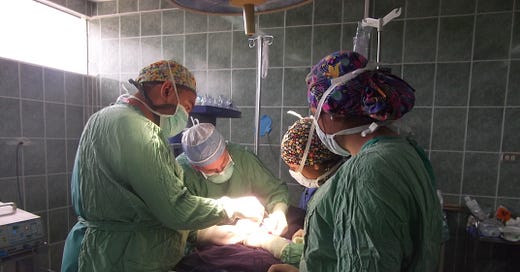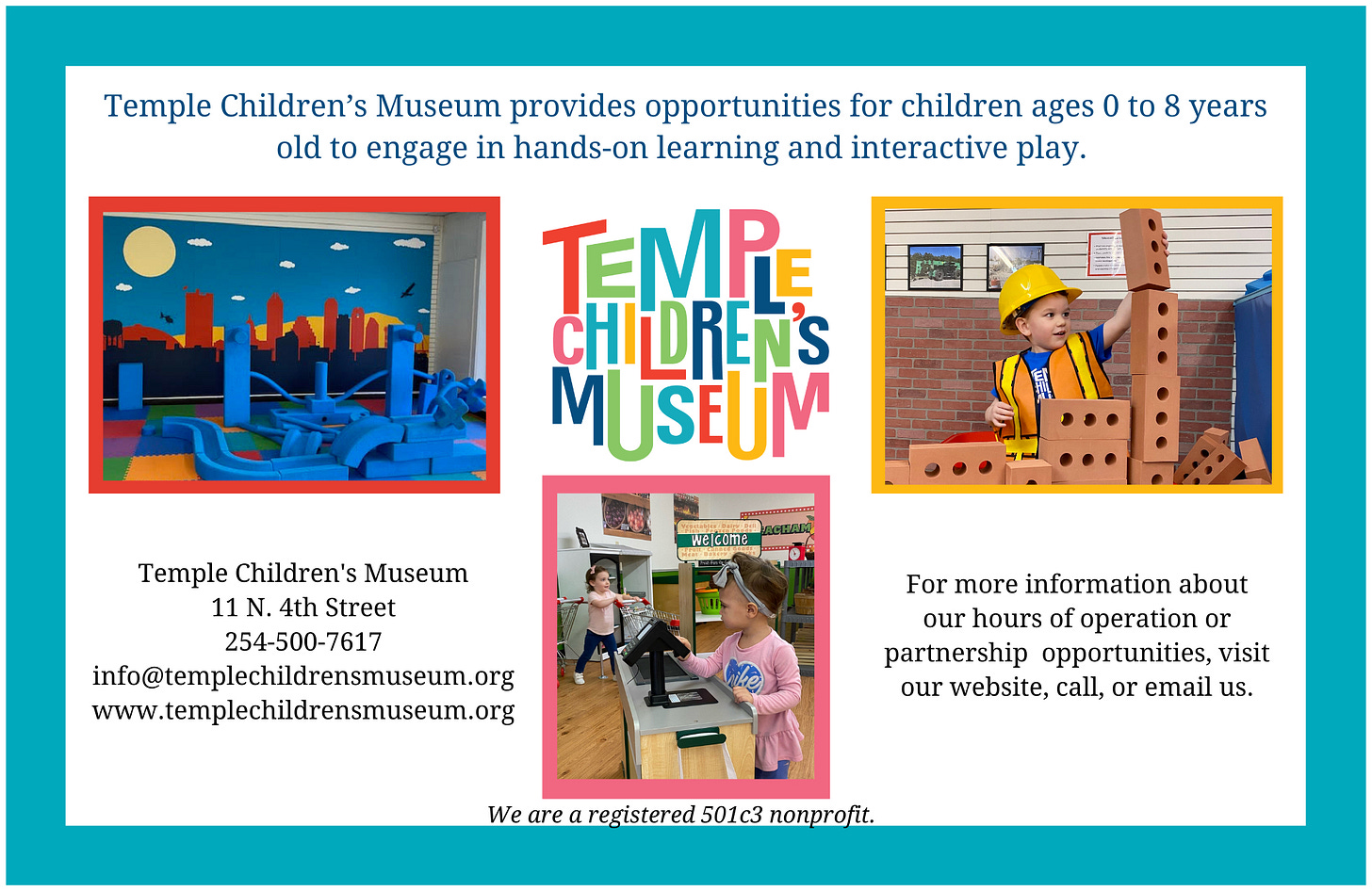Dr. Danny Custer of McLane Children's Medical Center and Dr. Mejia, a pediatric surgeon in Jinotega, Nicaragua, perform surgery on a young patient at a makeshift clinic in the mountain town. Custer has made 10 medical missions to Nicaragua, and other health-care professionals from the Temple hospital make yearly trips to Honduras, Guatemala, Ecuador and Africa. Courtesy photo
DAVID STONE | OUR TOWN TEMPLE
Since 2010, teams of physicians, surgeons, nurses and anesthesiologists from Baylor Scott & White McLane Children’s Medical Center in Temple have been making pilgrimages to third-world countries, providing surgeries and medical care to kids in need. Today we launch OPERATION: CHILDREN, an occasional series, to tell their stories.
| | | | | | |
Danny Custer, a retired pediatric surgeon, treated thousands of kids while practicing at Baylor Scott & White hospital and McLane Children’s Medical Center. He also operated on about 500 young Nicaraguans during 10 years of medical missions to the Central American hot spot.
“When I first became interested in going to third-world countries to help kids, I wasn’t really sure how to get started,” Custer said. “So, I turned to Dr. Google. I learned that thousands of US doctors make missionary trips all over the world, but very few of those practice pediatric surgery. The need was great, but the supply of surgeons was quite small.”
“I had a friend in Phoenix associated with a missionary group called Esperance, an organization formed 60 years ago by doctors who traveled up and down the Amazon River treating Brazilians that lacked medical care,” he said. “Esperance was planning a trip to Nicaragua, so I decided to sign up. I really had no idea of what to expect.”
Custer was part of a team that set up shop in the village of Jinotega, a mountain town near the Honduran border.
“We worked out of a clinic built for surgical mission trips,” he said. “I went there for about 10 years and operated on about 50 kids a week. Eventually we also did surgeries in other Nicaraguan towns and hospitals. We started small — doing hernia repairs and mending lacerations. But, things got more complicated. We actually did the first laparoscopic gall bladder operation on a child in Nicaragua.”
“The political climate changed in that country, and we had to stop going there. They were actually arresting physicians who treated the children of those opposed to the government.”
Although Custer and teams from McLane Children’s Medical Center no longer travel to Nicaragua, dozens of other countries have a need for American physicians and surgical teams, especially those who specialize in treating kids.
“We’re now focusing on Guatemala and Ecuador,” Custer said. “And we have two surgeons who spend six weeks in Africa every year training physicians to perform surgeries on children. It’s like the old adage: Give a man a fish, and he’s good for a day. Teach him how to fish, and he’s good for a lifetime.”
Custer no longer makes medical trips, but he helps organize medical missions for teams from McLane Children’s Medical Center.
“There are six pediatric surgeons at the hospital, and every one of them is involved in medical missions,” he said. “Every one of them. And it’s not just surgeons. A team usually includes a scrub nurse, an OR nurse, a recovery nurse and an anesthesiologist. Other physicians with a variety of specialties also are lining up to go. We all volunteer our time and skills to help kids globally.”
“Whenever possible, we take a resident doctor along,” he said. “They are awestruck by what we have to do to perform surgery in a third-world country where equipment is very limited.”
“That first trip to Nicaragua was so successful that I continued to return to the same place year after year,” Custer said. “We established a mutual working relationship with the only pediatrician in that area — Dr. Mejia. We were able to exchange surgical concepts and techniques so that each year we were able to perform more complex procedures and take care of more patients.”












